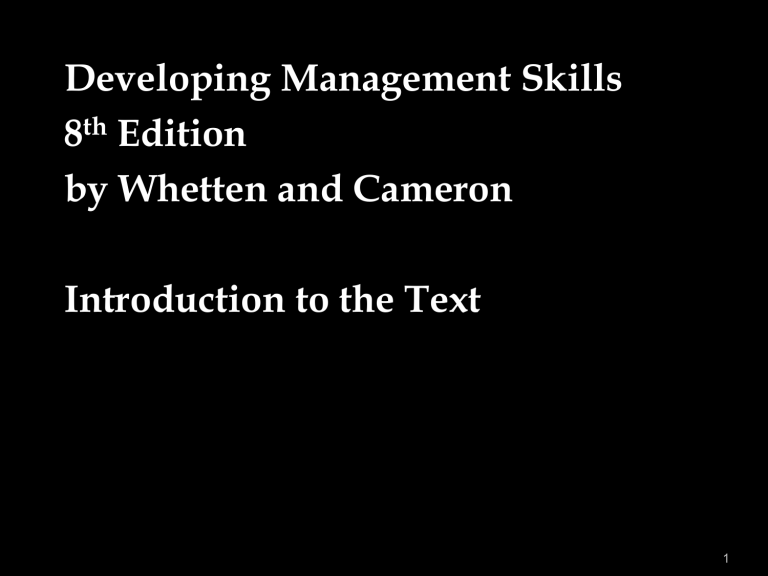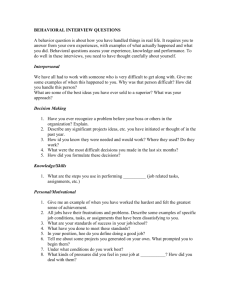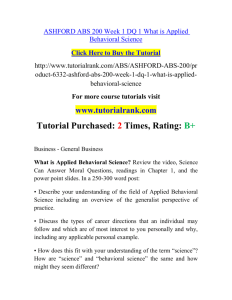What are Management Skills?

Developing Management Skills
8
th
Edition by Whetten and Cameron
Introduction to the Text
1
• Introduce the importance of management skills
• Identify essential management skills
• Explain a learning model for developing management skills
• Review the contents of the book
2
The development of skills needed to manage one’s life as well as relationships with others is a ceaseless endeavor.
3
A high IQ alone does not guarantee success in life and work.
Management skills can be improved with the proper balance of conceptual learning and behavioral practice.
That is, deliberate practice…
4
Management skills are the building blocks upon which effective management rests.
5
Verbal communication (including listening)
Managing time and stress
Managing individual decisions
Recognizing, defining, and solving problems
Motivating and influencing others
Delegating
Setting Goals and articulating a vision
Self-awareness
Team building
Managing conflict
6
They are behavioral
They are controllable
They are developable
They are interrelated and overlapping
They can be contradictory or paradoxical
7
Research shows that competent management is the key determinant to organizational success.
Decreased turnover
Increased profits
Greater sales
Greater stock value per employee
8
9
The skills that make a good manager and a good leader are not the same, but they are converging.
It is no longer possible to successful by just being a “transformational figure”.
10
11
Flexibility/Change
CLAN SKILLS
Communicating Supportively
Building Teams and Teamwork
Empowering
Internal
Maintenance
ADHOCRACY SKILLS
Solving Problems Creatively
Articulating a Vision
Fostering Innovation
External
Positioning
HIERARCHY SKILLS
Managing Personal Stress
Managing Time
Maintaining Self-Awareness
Analytical Problem Solving
MARKET SKILLS
Motivating Others
Gaining Power and Influence
Managing Conflict
Stability/Control
12
Components
Skill assessment
Skill learning
Skill analysis
Skill practice
Skill application
Contents
Survey instruments and
Role plays
Written text and
Behavioral guidelines
Cases
Exercises,
Simulations, and
Role plays
Assignments
(Behavioral and written)
Objectives
Assess current level of skill competence and knowledge; create readiness to change
Teach correct principles and present a rationale for behavioral guidelines
Provide examples of appropriate and inappropriate skill performance; analyze behavioral principles and reasons hey work
Practice behavioral guidelines; adapt principles to personal style; receive feedback and assistance
Transfer classroom learning to reallife situations; foster ongoing personal development
13
Part I: Personal Skills
Developing Self-Awareness
Managing Personal Stress
Solving Problems Analytically and
Creatively
Part II: Interpersonal Skills
Building Relationships by
Communicating Supportively
Gaining Power and Influence
Motivating Other People
Managing Conflict
14
Part III: Group Skills
Empowering and Delegating
Building Effective Teams and Teamwork
Leading Positive Change
15
Communication Skills
Making Oral and Written Presentations
Conducting Interviews
Managing Meetings
16
1.
2.
3.
4.
5.
Skills Assessment
Skill Learning
Skill Analysis
Skill Practice
Skill Application
17
You are encouraged to practice and apply the skills discussed in this text to everyday situations
– jobs, families, friendships, etc.
With conscientious practice, following the guidelines shown here will soon become second nature.
18





